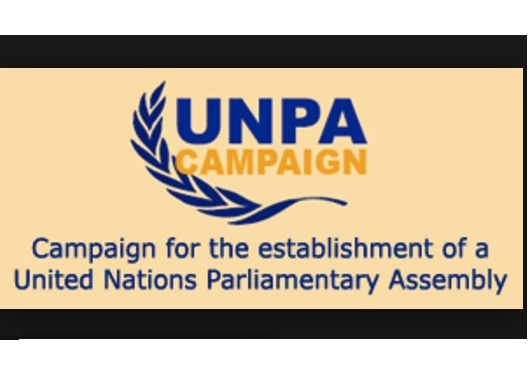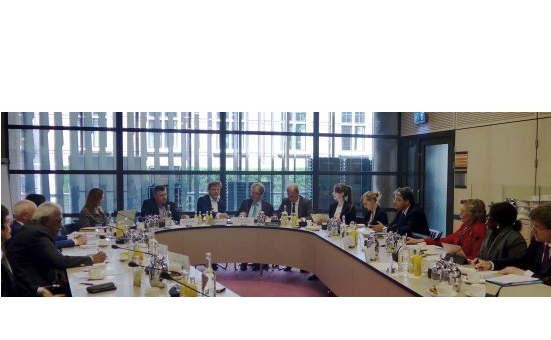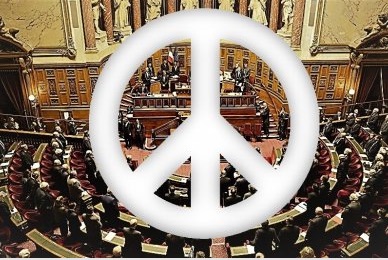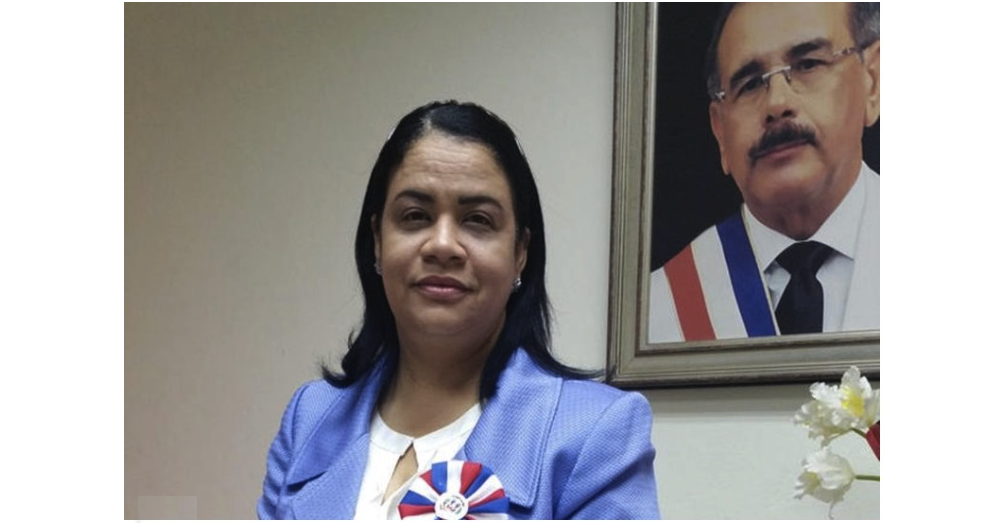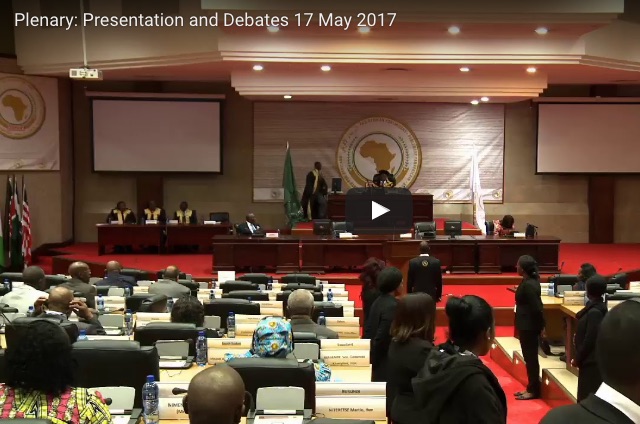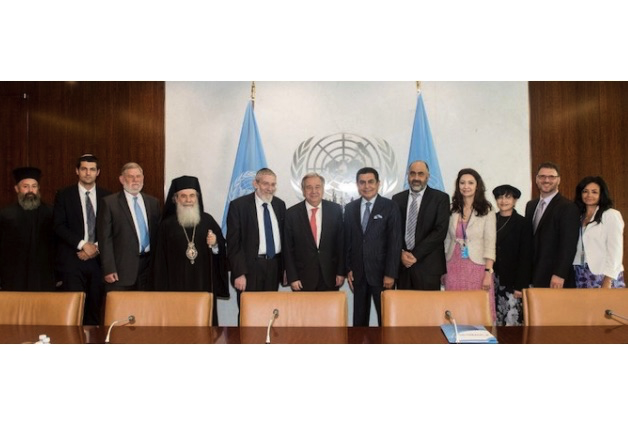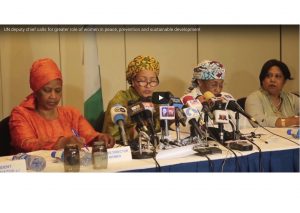…. HUMAN RIGHTS ….
An article by Markeshia Ricks in the New Haven Independent
Hundreds of immigrant rights activists took to the streets of Fair Haven [Connecticut] to celebrate — rather than protest as planned — after a 43-year-old woman taking sanctuary in a neighborhood church won a stay allowing her to remain in the country.
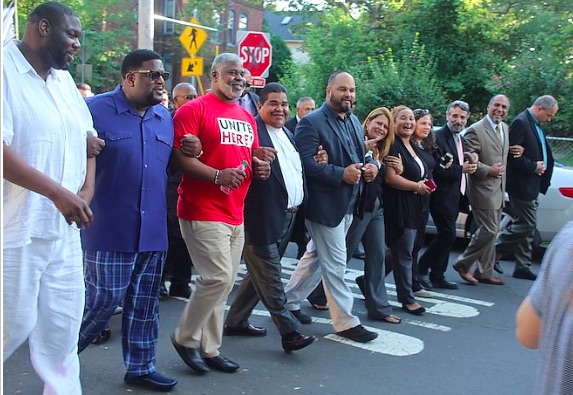
Clergy join Chavarria in leading off Wednesday’s march (She is at the center of the line)
(click on photo to enlarge)
The news means that Nury Chavarria can leave Iglesia de Dios Pentecostal, where she took up residence last week. Last Thursday she had disobeyed an order from U.S. Immigration and Customs Enforcement (ICE) last Thursday and skipped a flight back to Guatemala, occupying with her 9-year-old daughter a back room of the “sanctuary” house of worship. (Federal policy forbids immigration agents from entering church grounds to make arrests.) Now Chavarria can return home to Norwalk to work and take care of her four children.
The news hit New Haven late Thursday afternoon as a rally on her behalf was beginning outside the church. The more than 300 people present took a victory lap that Kica Matos of Fair Haven, an organizer focused on immigration and race at the Center for Community Change, told the crowd would be loud and celebratory instead of the planned silent march.
Rabbi Herbert Brockman of Congregation Mishkan Israel sounded a shofar, a musical instrument made of a ram’s horn, to mark the victory for Chavarria and kick off the Jericho march around the block.
“I am very emotional grateful to God,” Chavarria told the crowd with the help of an English translator. “Now I can cry, but not as I did on the 20th when I was shedding tears because I had to leave. God has been my attorney.”
Chavarria’s attorneys won the stay at around 2 p.m. in U.S. Immigration Court in Hartford. Immigration and Customs Enforcement (ICE) then agreed not to seek custody of her. So she’ll be free to go home.
At 5:30, Chavarria and her attorneys and supporters came out to greet the rally and announce the news. The group, which had originally planned to stage a silent protest march, still paraded down to Grand Avenue and then around the block to the church past the Cool Breeze Music in the Park event that was taking place in Quinnipiac River Park, but in celebration.
(Article continued in the right column)
The post-election fightback for human rights, is it gathering force in the USA?
(Article continued from the left column)
One of her attorneys, Marisol Orihuela, described how her team filed two motions: an emergency motion for a stay of deportation and a motion to reopen her case based on new evidence.
“Her story was so compelling that only one hour after filing, immigration granted her motion for a stay,” said Orihuela, a Yale Law School clinical associate professor affiliated with the school’s Worker and Immigrant Rights Advocacy Clinic.
Mayor Toni Harp also addressed the gathering. She said the city will continue to stand with Chavarria. “Oftentimes there are people who question the value of having Yale in our community,” Harp said. “But I cannot tell you how grateful I am for Yale’s immigration clinic.”
“ICE, the rest of those who mess with our neighbors, know better than to come to New Haven,” Harp added.
Elected officials who had taken up her cause — including Gov. Dannel P. Malloy, U.S. Sens. Chris Murphy and Richard Blumenthal, and U.S. Rep. Rosa DeLauro — issued statements commending the decision by a judge and the Immigration and Customs Enforcement (ICE) to grant Chavarria the stay. The senators vowed to continue working to win Chavarria, who has never encountered trouble with the law in her 24 years in this country as she raised her children as a single mother and worked for a housecleaning company, permanent permission to stay here.
“Today, reason and compassion have prevailed. There was never a rational justification for Nury Chavarria to have been threatened with deportation and separated from her children,” Malloy’s statement read in part. “Members of the community had their voices heard.”
Chavarria was one of 13 undocumented immigrants taking sanctuary in U.S. houses of worship. She was the first to do so in New Haven. Her case became national news, and she warmed up to the role of spokesperson for a movement.
“I’m glad ICE finally listened to our calls for justice for Nury, and I’m grateful for all the community support she received,” Murphy was quoted as saying in a release issued by his office. “But this is just a temporary victory, and only when President Trump’s mean-spirited policy of tearing apart parents from their young children ends will meaningful justice be achieved.”
Pastor Hector Ortero said he was sad to see Chavarria head home, but happy for her victory. Iglesia de Dios Pentecostal Pastor Hector Ortero said he was sad to see Chavarria head home to Norwalk Thursday, but happy for her victory. He reminded the crowd that the language of heaven is not English, Spanish or French.
“The language of heaven is faith,” he said. “We still believe. I pray that God bless Nury and her lovely family, that God bless everyone and God bless the United States of America.”
